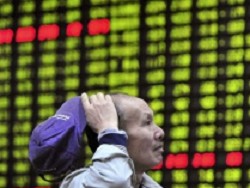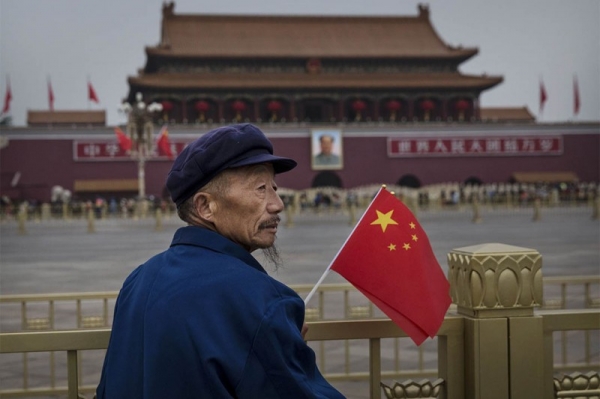
It seemed, nothing foretold troubles. However, the first day after the G-20 summit in Shanghai was marked by the collapse of the Chinese stock market.
The Shanghai Composite stock index in early trading fell to 4%, updating the lows for 15 months.
Optimism was nowhere to wait, because at the summit there were no clear measures to stimulate the economy and financial markets. Not even the weakening of the yuan official exchange rate of the Chinese currency today was set at minimum of 8 weeks. It turns out that the Chinese were just waiting for the end of the G20 summit, then to proceed with the devaluation.
Returning to the stock market, it is worth noting that after today’s collapse of the Shanghai Composite index had fallen back to the levels of November 2014, that is, in fact, all that the phenomenal growth in Chinese equities, which we saw in the first half of last year, in the past.
Some experts warn that now is a possible scenario in which money will again flow into the real estate market, and it will distract liquidity from the stock market.
This is not surprising. Now, when the Chinese stock bubble finally burst, people would have to find another asset class that money will flow in the coming months. This asset will be real estate.
But the authorities still adhere to the chosen strategy, taking responsibility for movement on the markets, particularly on currency and shifting the blame for what is happening in the economy on the media, individual journalists and traders.
The Minister of Finance of China Lou Zziwa said recently that the government will no longer provide a purposeful devaluation of the yuan.
“This question is not included in the current agenda”, – quotes the Minister China Daily.
He also noted that rumors about further devaluation of the national currency raised by the media.
However, despite the fact that Beijing demonize the media and participants of the financial market, devaluation of the yuan continues, especially against the background of preserving capital outflow. However in recent weeks the rate has been relatively stable and even in the middle of February showed active strengthening, but risks of a further fall has not disappeared.
The people’s Bank of China severely devalued the yuan in July-August 2015, and the course was reduced by 1.5% in early 2016, the yuan depreciates against free bid amid falling investor confidence in the economy and capital flight, but with this the Central Bank can not do anything.
Germany vs. incentives
Speaking in Shanghai, the German Finance Minister Wolfgang Schaeuble said that idle talk about incentives only distract from real problems. The German authorities will strongly oppose any stimulus package at the G20, in plain text was added.
It seems that in the summit of “Twenty” a conflict is brewing. Jacob Lew, the head of the US Treasury, before heading to Shanghai, said that many of the G20 countries have to use monetary incentives and a policy for acceleration of GDP. His colleague from China confirmed the readiness to increase its deficit in the name of supporting the economy. States promote incentives, China is not averse to get into more debt – in Germany serious contenders.
Schaeuble believes that it has cheap hydrocarbons have become a kind of stimulus to global aggregate demand for all goods and services. The former head of the fed Ben Bernanke, by contrast, believes that global demand and oil prices fall at the same time, dragging the stock markets. A pronounced positivity in this process, Mr. Bernanke doesn’t see, unlike his Berlin коллеги.http://www.rg.ru/2016/02/29/plohuiu-pamiat-sviazali-s-ozhireniem.html








